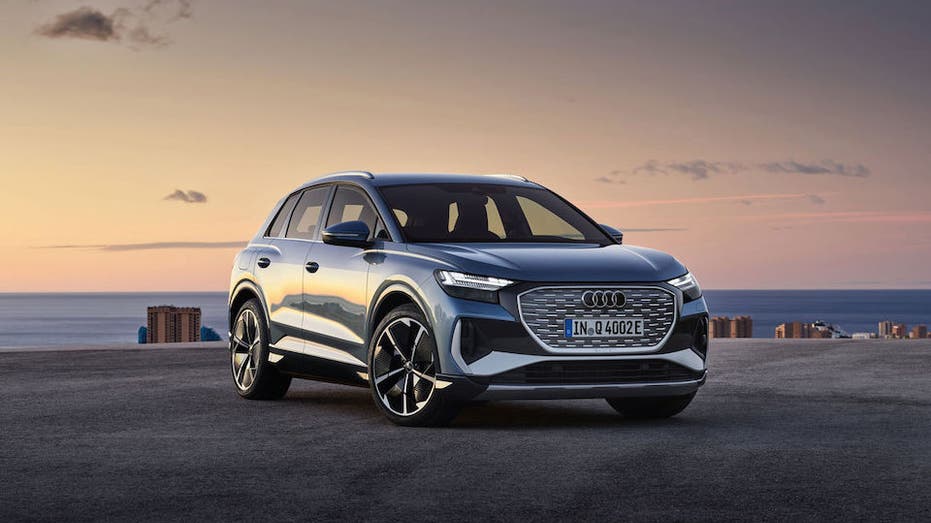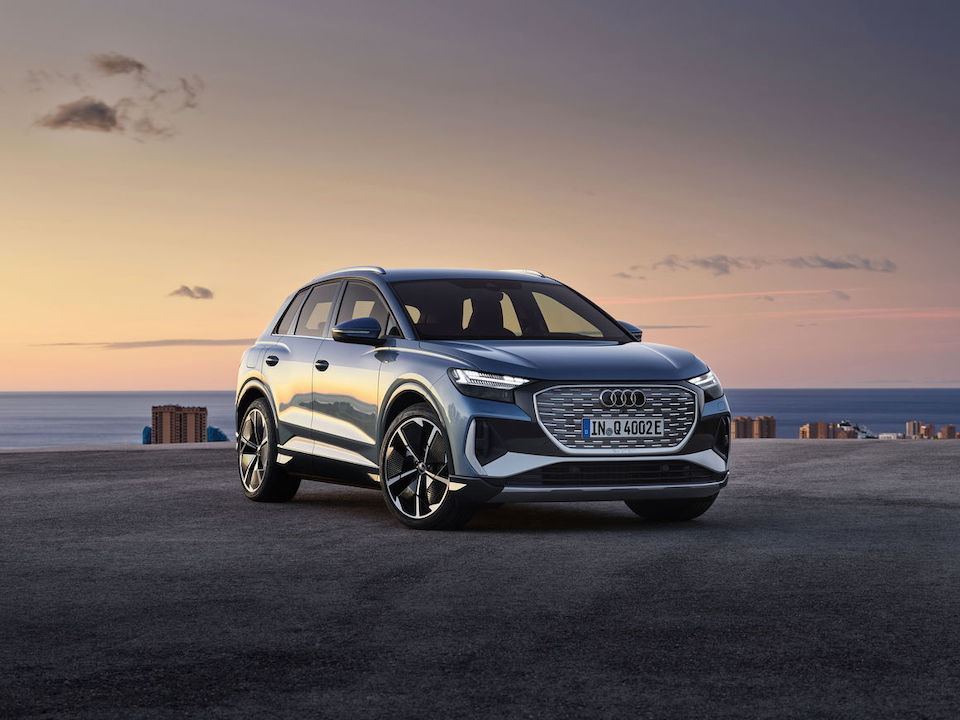Audi bets big on electric vehicles as demand surges, supply chain snarls persist
Audi currently has 5 all-electric vehicle models in the US, including the Q4 e-tron and Q4 e-tron Sportback
Biden drives electric car at Detroit auto show
The Federalist Senior Editor David Harsanyi discusses how Biden is still pushing the EV agenda despite economic crisis on ‘Fox Business Tonight.’
Audi has been unable to keep up with customer demand for its portfolio of electric vehicles due to supply chain challenges.
"We see a huge demand for electric vehicles, actually more demand than supply," Audi of America President Daniel Weissland told FOX Business. "The supply is challenged to a certain extent by the global supply issues we all have, and we constantly evaluate to see how we can increase our capacity to make sure that every customer gets to drive an electric vehicle."
Audi of America reported a total of 48,049 vehicle deliveries in the second quarter of 2022, down 28% year over year. However, its all-electric e-tron family model line saw year-over-year sales growth of 87% during the quarter. The e-tron SUV, Sportback and GT delivered a combined total of 4,777 units during the quarter.
Though Weissland is "pretty confident" in the automaker's ability to fulfill the majority of its EV orders, he expects that supply chain issues will likely persist for the next few years.
"I don't think it's going to go away completely," he added.
BIDEN PROMOTES EXPENSIVE ELECTRIC VEHICLES AT AUTO SHOW AMID RECORD INFLATION
Audi plans to invest 19 billion euros ($18.98 billion) globally in electrification through 2026. Weissland said that all new Audi vehicles introduced after 2026 will be fully electric and the company will begin gradually phasing out the production of the last internal combustion engines in 2033.

Audi's all-electric vehicle portfolio in the United States currently consists of five models, including the Q4 e-tron and Q4 e-tron Sportback. (Photo courtesy of Audi) (Audi)
Audi's all-electric vehicle portfolio in the U.S. currently consists of five models, including the Q4 e-tron and Q4 e-tron Sportback.
"Q4 e-tron brings an entry price level below $50,000 for premium customers," Weissland said. "It will help us to bring more people into electric vehicles, which is important to reduce CO2 emissions and protect our future, our planet and provide a safe environment for our kids and grandchildren."
DUTCH STUDENTS CREATE CARBON-EATING ELECTRIC VEHICLE
The White House, which set a goal for electric vehicles to make up 50% of all vehicles sold in the U.S. by 2030, says auto companies have invested nearly $85 billion in manufacturing of electric vehicles, batteries and chargers in the country since President Biden took office.
On Wednesday, Biden announced the approval of $900 million to build electric vehicle chargers across 53,000 miles of the National Highway System across 35 states.
The $1 trillion infrastructure law signed in November provides $5 billion over five years toward building a nationwide network of 500,000 electric vehicle chargers. Additionally, it includes $2.5 billion in discretionary grants to help expand EV charging and other alternative fueling infrastructure within rural areas, low- and moderate-income neighborhoods and communities with a low ratio of private parking spaces.
Electrify America, the largest open direct current fast charging network in the U.S., currently has roughly 3,500 electric vehicle chargers, with plans to increase that number to 10,000 by 2026.

President Joe Biden gets into a Corvette during a tour of the Detroit Auto Show, Wednesday, Sept. 14, 2022, in Detroit. (AP Photo/Evan Vucci) ((AP Photo/Evan Vucci) / AP Newsroom)
Audi's director of sustainability and government affairs, Spencer Reeder, told FOX Business that while any funding that contributes to building out EV charging infrastructure will help transform the industry, he views the $7.5 billion provided by the Bipartisan Infrastructure Law as a "down payment."
"A number of analyses have sort of looked at what the need is over the next few years, and by some estimates, [the Bipartisan Infrastructure Law] represents maybe about 10% of the needed investment from the federal government," Reeder said.
IN OR OUT: FORD GIVES DEALERS ULTIMATUM ON EV SALES
Additionally, President Biden signed the Inflation Reduction Act into law in August, which provides incentives for buyers of new and used EVs, credits to help manufacturers retool existing facilities and build new manufacturing in the United States and grants to deploy zero emission heavy-duty vehicles.
Beginning next year, income-qualified households will receive a tax credit of up to $7,500 for new vehicles assembled in North America with batteries that meet certain sourcing requirements. The vehicle must have a manufacturer’s suggested retail price of $80,000 or less for pickup trucks, vans and SUVs, and $55,000 or less for other vehicles, including sedans.
As for previously owned electric vehicles, income-qualified households will have access to a tax credit of up to $4,000 for vehicles that are at least two years old and cost $25,000 or less.
According to a list released by the Department of Energy, the 2022 Audi Q5 is the company's only vehicle that may currently meet the Clean Vehicle Credit's North American final assembly requirement.
"It is a challenge the way it was currently sort of drafted," Reeder said. "I think there was a lot of conversations around how it's implemented and what kind of flexibilities might be introduced in the implementation conversation. We're at the table and we're having those conversations with our partners."





















